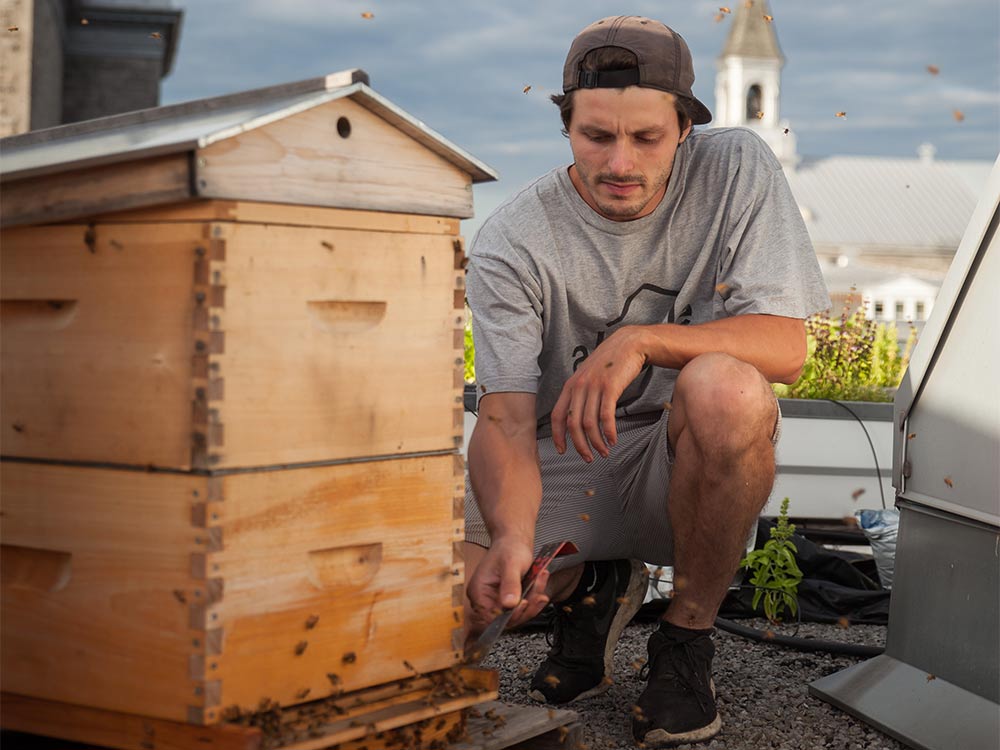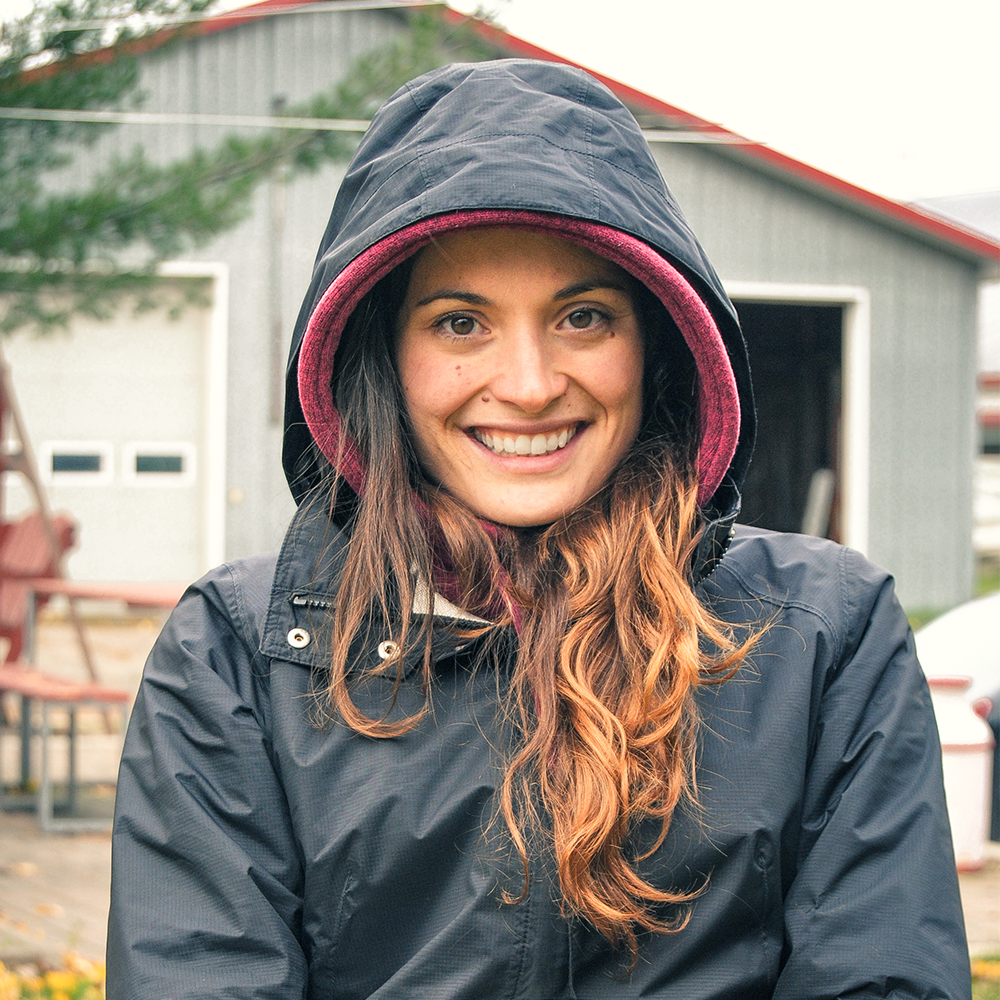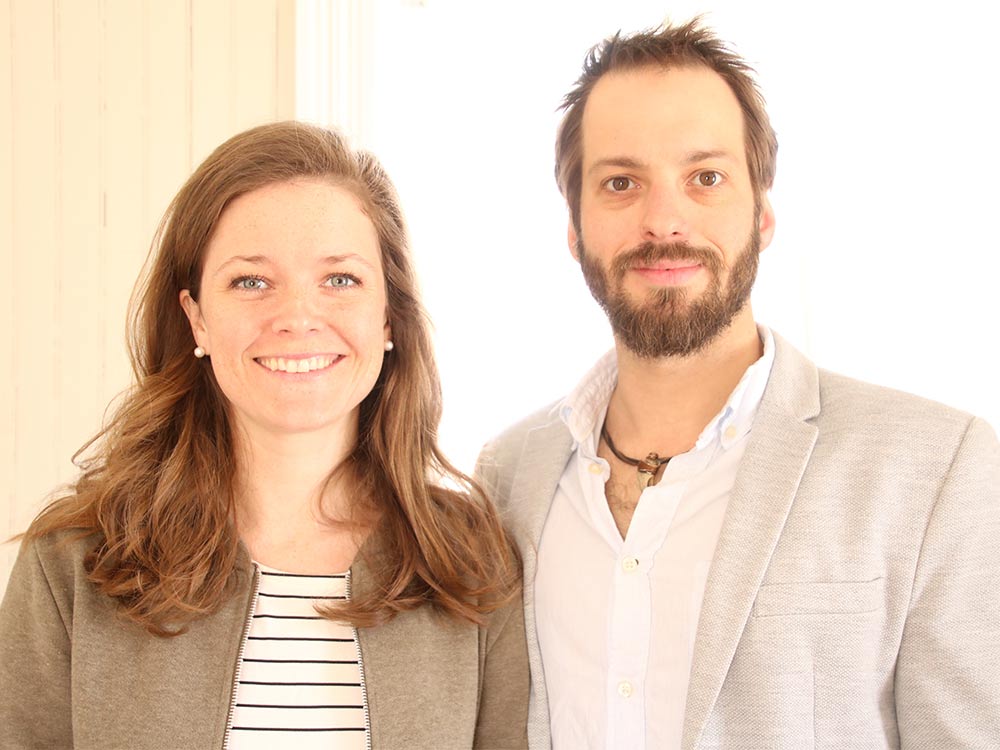
Alvéole: Changing the urban landscape one roof at a time
Étienne Lapierre’s Story
Étienne Lapierre and his two friends Alexandre McLean and Declan Rankin Jardin had no idea that their visit to Manitoba to learn the basics of beekeeping would spark an interest in entrepreneurship. During that period spent with the bees, they realized the commercial model of production was hard on the worker bees and the use of pesticides was widespread in the industry. “We told ourselves we would rethink the current model to make it more sustainable for the environment and the bees by using the urban landscape,” explains Étienne.
They launched Alvéole as a pilot project in 2011. Beehives were installed in a Montreal laneway, where the bees were able to gather pollen in a pesticide-free environment. The business was run from a garage on Bordeaux Street. “Everyone living on that street came to visit the hives, and we noticed how the bees enabled social relationships to be created,” says Étienne.
Thus Alvéole's mission took on a social dimension. Their goal was not only to produce honey locally and improve pollination, but also to connect residents with their environment. The three entrepreneurs landed on the idea partly after being inspired by similar initiatives in New York.
See also : ÉAU: Developing local food sustainability
Alvéole sees itself today as a service business. It takes care of colony maintenance and harvests the honey produced by the bees for those who host a hive on their roof in exchange for a flat fee. Individuals and businesses like Agropur and Métro have supported the socially minded company, and there are approximately 800 hives installed on roofs in Greater Montreal, Toronto and Quebec City.
”Your project needs to be validated by your sales. Often people expect to create a perfect business plan before launching the business.”
Étienne Lapierre
Innovating and creating a new business model
Convincing the public of the feasibility of their initiative wasn’t always easy. Étienne admits to being too naive when he launched the business, since he didn’t understand the challenges he and his team would face. Quite a few barriers needed to be knocked down in order to convince the boroughs to change their regulations and to persuade school administrations that bees were harmless. Since urban beekeeping had no history in Montreal, the market had to be constructed from the ground up.
”Creating a business model is a huge challenge, but it motivates you. Being a force for change really puts a sparkle in your eyes.”
Étienne Lapierre
Beyond selling honey, Étienne sees Alvéole as remaining a company that emphasizes social participation by involving citizens in honey production. The business’s unusual partnership with Accueil Bonneau is something they are particularly proud of. In 2013, Alvéole was contacted by a lawyer who suggested a partnership with the organization for the homeless. While Étienne admits the project operated at a loss in its first year, today it is wonderfully successful. “At the moment they are our biggest contract, with a total of 64 hives! Those receiving assistance from Accueil Bonneau are involved and residents are buying the honey produced from the roofs of businesses. I can’t tell you how many connections have been created by that partnership,” states Étienne.
Alvéole aims to continue to innovate while keeping its mission and values in sight. Although no concrete plans have yet been put in place, the company intends to make rooftops greener and more attractive by improving the design of their hives. “We want to redefine the rooftop landscape and make Montreal a model for urban agriculture,” he concludes.
Alvéole in Numbers:
10: Amount of honey in kilograms produced by one beehive
27: Number of employees
22: Étienne Lapierre’s age when he first started his business
50,000: Number of bees in a single hive


